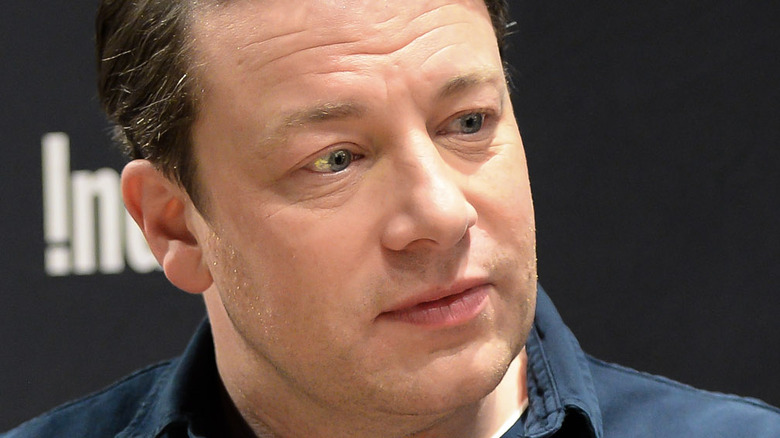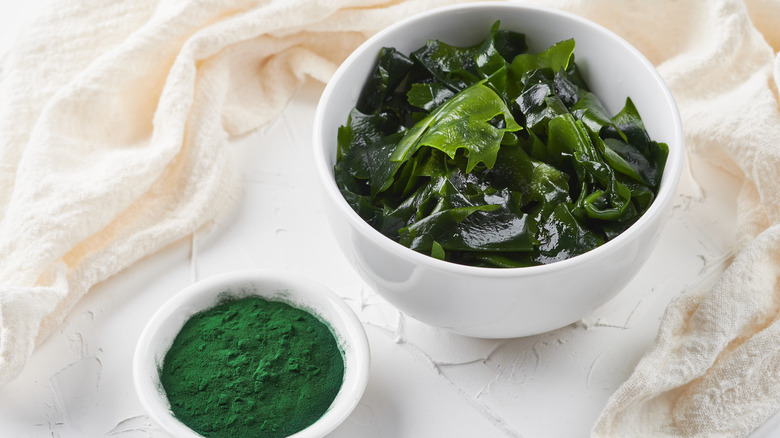The Surprising Vegetable Jamie Oliver Swears By
Celeb chef Jamie Oliver might have made it his life's mission to improve the quality of school lunches but for a time, he didn't appear to be as careful with his own lifestyle choices. But a few "tweaks" in both diet and lifestyle resulted in a gradual loss of 28 pounds, resulting in a healthier-looking chef.
One of those changes include getting more shut-eye. "Sleep has become profoundly important to me. I was never getting enough of it and I didn't understand the value of it. And I treat it like work," Oliver said during an interview. "Just like I do with little Buddy [his four-year-old son] when I tell him to get to bed, I get to bed! I have little vibrating things that shake me when it's 10 p.m.," he said (via Daily Mail).
He's also become a fan of a vegetable that many of us tend to overlook, likely because it isn't as widely available in the west: seaweed. The celebrity chef said: "I thought seaweed was hippy, globetrotting stuff but our ancestors ate seaweed. It's got a load of iodine and it's the most nutritious vegetable in the world. I'm saying lose it in a minestrone because that stuff is really, really good for you. It's like dynamite — fibre, nutrients, all the minerals, aids digestion — unbelievable."
Seaweed packs a nutritional punch
There are different types of edible seaweed, all with different health benefits. Time lists three types which we'd recognize: brown algae, which, when processed, results in kombu, which the Japanese use to make dashi; Green algae or sea lettuce; and red algae, which we most often encounter as sushi wraps. There are even seaweeds that can taste like bacon when they've been cooked up.
If you're planning to go Jamie Oliver's route and plan to use seaweed as a way to a health boost to your meal, know that seaweed is rich in iodine, may help sugar levels, can support immune functions, and can support both your heart and your gut (via BBC). As U.S.-based dietitian Miho Hatanaka puts it, "Even with a smaller amount of seaweed, you can get a lot more nutrients out of it than ground vegetables."
But as with all things, processed seaweed, which is showing up as snacks, can also be high in additives that include sodium and other additives. Rising levels of ocean pollution also means seaweeds are picking up contaminants that can be found in dirty water, including arsenic, lead, silicon, and lead. So as with everything, it's best to consume seaweed in moderation.

